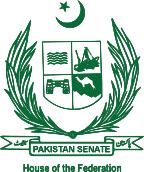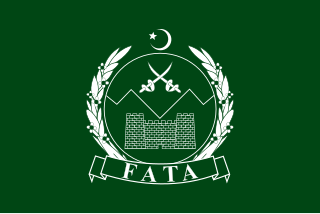Related Research Articles
A constitutional amendment is a modification of the constitution of a polity, organization or other type of entity. Amendments are often interwoven into the relevant sections of an existing constitution, directly altering the text. Conversely, they can be appended to the constitution as supplemental additions, thus changing the frame of government without altering the existing text of the document.
The Tenth Amendment of the Constitution Act 1987 is an amendment to the Constitution of Ireland that permitted the state to ratify the Single European Act. It was approved by referendum on 26 May 1987 and signed into law on 22 June of the same year.
The Twenty-sixth Amendment of the Constitution Act 2002 is an amendment of the Constitution of Ireland which permitted the state to ratify the Treaty of Nice. It was approved by referendum on 19 October 2002 and signed into law on 7 November of the same year. The amendment followed a previous failed attempt to approve the Nice Treaty which was rejected in the first Nice referendum held in 2001.
Amendments to the Constitution of Ireland are only possible by way of referendum. A proposal to amend the Constitution of Ireland must first be approved by both Houses of the Oireachtas (parliament), then submitted to a referendum, and finally signed into law by the President of Ireland. Since the constitution entered into force on 29 December 1937, there have been 32 amendments to the constitution.

Senate of Pakistan or Aiwān-e-Bālā Pākistān is the upper legislative chamber of the bicameral legislature of Pakistan, and together with the National Assembly makes up the Parliament.

The Florida Senate is the upper house of the Florida Legislature, the state legislature of the U.S. state of Florida, the Florida House of Representatives being the lower house. Article III, Section 1 of the Constitution of Florida, adopted in 1968, defines the role of the Legislature and how it is to be constituted. The Senate is composed of 40 members, each elected from a single-member district with a population of approximately 470,000 residents. Legislative districts are drawn on the basis of population figures, provided by the federal decennial census. Senators' terms begin immediately, upon their election. The Senate Chamber is located in the State Capitol building.
Three referendums were held simultaneously in Ireland on 7 June 2001, each on a proposed amendment of the Constitution of Ireland. Two of the measures were approved, while the third was rejected. The two successful amendments concerned the death penalty and the International Criminal Court.
The Twenty-fifth Amendment of the Constitution Bill 2001 was a proposed amendment to the Constitution of Ireland to tighten the constitutional ban on abortion. It would have removed the threat of suicide as a grounds for legal abortion in the state, as well as introducing new penalties for anyone performing an abortion, by giving constitutional status to legislation proposed to be enacted after the amendment. It was narrowly rejected in a referendum held on 6 March 2002, with 50.4% against.

The Federally Administered Tribal Areas was a semi-autonomous tribal region in northwestern Pakistan that existed from 1947 until being merged with neighbouring province Khyber Pakhtunkhwa in 2018. It consisted of seven tribal agencies (districts) and six frontier regions, and were directly governed by Pakistan's federal government through a special set of laws called the Frontier Crimes Regulations. It bordered Pakistan's provinces of Khyber Pakhtunkhwa, Balochistan, and Punjab to the east, south, and south-east respectively, and Afghanistan's provinces of Kunar, Nangarhar, Paktia, Khost and Paktika to the west and north. The territory is almost exclusively inhabited by the Pashtun, who also live in the neighbouring provinces of Khyber Pakhtunkhwa and Northern Balochistan, and straddle across the border into Afghanistan. They are mostly Muslim.
The Twenty-fifth Amendment may refer to the:

The Eleventh Amendment Bill to the Constitution of Pakistan was presented in the Senate on 31 August 1989. It was moved by Senators Mr. Muhammad Ali Khan, Dr. Noor Jehan Panezai and Syed Faseih Iqbal. The Amendment sought to restore the seats for Women in National Assembly to 20. The bill was later withdrawn after the Government gave assurance that they intend to introduce the same bill themselves soon.
Twenty-first Amendment to the Constitution of Pakistan was passed by both the National Assembly of Pakistan and Senate of Pakistan on January 6, 2015, and received the assent of the President on January 7, 2015. The Bill amended the Article 175 and the First Schedule of the Constitution. It also has a self-contained sunset clause, which causes the amendments to expire on January 7, 2017.
The Twenty-second Amendment of the Constitution of Pakistan, officially known as the Constitution Act, 2016, sets to amend the procedure for the appointment, qualifications and other prerequisites for the chief election commissioner (CEC) and four members of the Election Commission of Pakistan (ECP).
The Twenty-fifth Amendment of the Constitution of Pakistan, officially known as the Constitution Act, 2018, was passed by the Parliament of Pakistan and the Khyber Pakhtunkhwa Assembly in May 2018. Under the amendment, the Federally Administered Tribal Areas (FATA) and Provincially Administered Tribal Areas (PATA) are to be merged with the province of Khyber Pakhtunkhwa (KP).
The Constitution Act, 2017 was a proposed amendment to the Constitution of Pakistan aimed at restoration of delegation powers of the federal government to its officers or subordinate authorities which weren't included in the Eighteenth Amendment to the Constitution of Pakistan. The Constitution Act, 2017, introduced to the National Assembly of Pakistan sought to amend Article 90, 99, and 139 of the Constitution.
The Constitution Act, 2017, was a proposed amendment to the Constitution of Pakistan which aimed to implement changes recommended by the Parliamentary Committee on Electoral Reforms.
The Constitution Act, 2017 was a proposed amendment to the Constitution of Pakistan which aimed to restore military courts. The amendment would be an extension of the expired Twenty-first Amendment to the Constitution of Pakistan.
The Constitution Act, 2017 was a proposed amendment to the Constitution of Pakistan seeking to allow the federal cabinet to authorize a minister or state minister to advise the President of Pakistan instead of the Prime Minister.
The Constitution Act, 2017 was a proposed amendment to the Constitution of Pakistan seeking to create seats for the Federally Administered Tribal Areas in the Khyber Pakhtunkhwa Assembly and establish a new judicial system in the tribal belt. The amendment would have added new provisions to the Constitution to create room for FATA lawmakers in the Khyber Pakhtunkhwa Assembly after the merger of FATA and Khyber Pakhtunkhwa. The amendment was introduced to the National Assembly of Pakistan alongside the Tribal Areas Rewaj Act.
References
- ↑ "NA Body Approves Constitution (Twenty-fifth) Amendment Bill". Pakistan Point. 2017-02-27. Retrieved 2018-05-28.